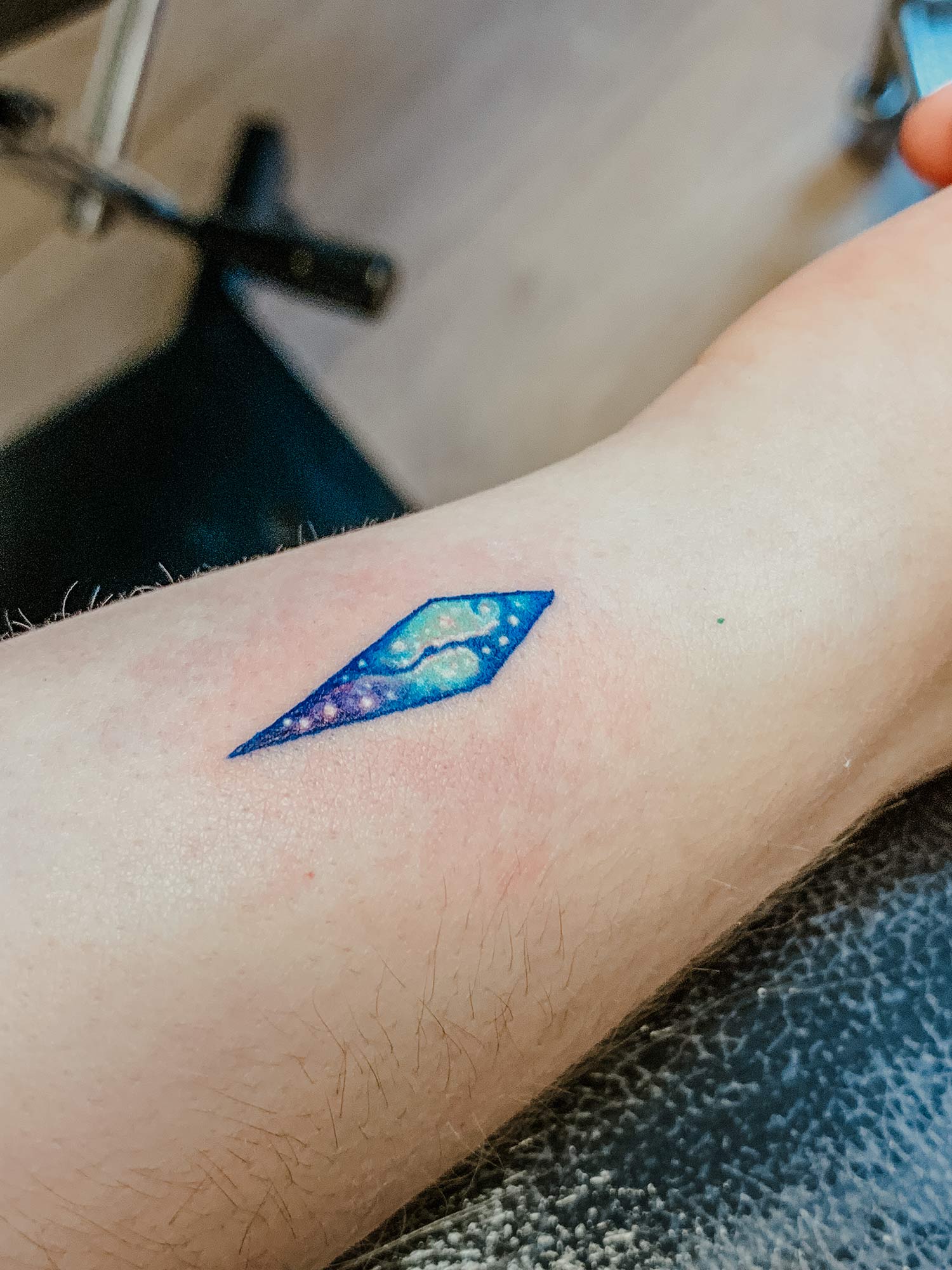Tattoo Regret: Can You Really Remove That Ink?
Tattoos are a form of self-expression that has been embraced by people worldwide, and I’m one of those people. The permanence of tattoos, however, can sometimes lead to regret as tastes change or personal circumstances evolve, and again, I am one of those people. This has led to a significant demand for safe and effective tattoo removal techniques. While several options are available, the effectiveness of these methods can vary based on the tattoo’s age, size, colour, and the individual’s skin type. I thought it would be good to look into the different methods that you can use and how they work as I’m seriously considering removing one of my own tattoos – the ‘Open Your Mind’ quote on my elbow crease.
Understanding Tattoo Removal
Tattoo removal techniques have significantly evolved, driven by technological advancements that offer a variety of methods to erase unwanted ink. Laser therapy stands out as the most prevalent and trusted approach, and the one that I’m looking into. This method employs concentrated light to shatter the tattoo ink into smaller particles, which the body eliminates naturally. This technique is favoured for its effectiveness and minimal scarring risk, but it will take multiple sessions and it is painful.
Alternatively, surgical removal, dermabrasion, and chemical peels present unique advantages and disadvantages. Surgical removal involves excising the tattooed area, dermabrasion sands away top skin layers, and chemical peels use acid to remove the ink, all varying in effectiveness, recovery time, and potential for side effects.
Special Considerations for Different Skin Types
Considering how different skin types react to tattoo removal procedures is crucial. Darker skin tones, in particular, are at a higher risk for pigmentation issues. If you have a darker skin tone and are looking for tattoo removal options, it is essential to consult specialists who are experienced in handling complex cases.
For more detailed information, you may want to visit reputable websites and online resources to check out tattoo removal solutions for dark skin, which offers valuable insights, but for those with lighter skin tones, carry on reading for more information.
Factors Affecting Tattoo Removal Success
The success of tattoo removal hinges on several factors, each influencing the ease and effectiveness of the process. Understanding these factors can significantly affect the approach and outcomes of removing unwanted ink, making it crucial to tailor the technique accordingly. Some factors to consider include:
Ink Depth and Colour
The depth of the ink and the colours used are significant factors in determining the complexity of the removal process. Darker inks, such as black and blue, absorb all laser wavelengths, making them easier to remove. In contrast, lighter colors like yellow and green are more challenging and require specialised lasers.
Tattoo Age
Older tattoos tend to fade naturally over time, making them easier to remove than newer ones. The fading is due to the gradual dispersion of ink particles and the body’s immune response to the foreign particles.
Size and Location
Larger tattoos or those in areas with poor circulation, such as the feet and hands, can be more difficult to remove. Smaller tattoos are generally quicker to treat, and fewer sessions are required.
Laser Tattoo Removal: How It Works
Laser tattoo removal involves using pulses of light energy to break down the ink particles in the skin. Different types of lasers are used depending on the pigment colours. The most commonly used lasers include Q-switched lasers and picosecond lasers, which are effective in various colours and can significantly reduce the appearance of a tattoo without leaving scars.
On the other hand, while laser tattoo removal is generally safe, it can cause side effects such as redness, swelling, blistering, and hyperpigmentation, especially in darker skin tones. Proper aftercare and following the advice of a qualified technician can minimise these risks.
Alternative Methods of Tattoo Removal
While laser therapy is a popular choice for tattoo removal, alternative methods also exist for those seeking different options. These include:
Dermabrasion
Dermabrasion involves sanding down the skin to remove the upper layers where the tattoo ink resides. This method can be painful and is less commonly used due to the higher risk of scarring and infection.
Surgical Excision
For small tattoos, surgical excision might be a viable option. This method involves cutting out the tattooed skin and stitching the remaining skin together. It is usually more invasive and typically leaves a scar. I probably wouldn’t recommend this one.
Chemical Peels
Chemical peels, which use acid to burn away the top layers of skin, can also be used for tattoo removal. However, they are less controlled than laser treatments and can lead to uneven skin tone, particularly in those with darker skin.
Choosing the Right Professional
Choosing a skilled and qualified professional is paramount for safe and successful tattoo removal. Ensuring the practitioner has a robust background and expertise in tattoo removal techniques can significantly affect the outcome. This is particularly crucial for individuals with dark or sensitive skin, as they may face unique challenges during removal.
Researching and consulting with specialists with a solid track record of handling similar skin types ensures that the methods used are appropriate and minimise the risk of complications such as scarring or pigment changes. I’ve already found a clinic I would like to use and am looking at the laser.
Conclusion
Tattoo regret is a common experience for many of us, but modern technology has made it possible to reverse this permanent decision (entirely, or almost entirely). You can choose the most appropriate removal strategy by understanding the different methods available and considering individual factors such as skin type and tattoo characteristics. Always consult a professional to ensure the chosen method aligns with personal health and aesthetic goals though, you don’t want to be scarred.







This is so interesting, Lorna, I have just one tattoo and that’s the way it will remain. I’ve seen and talked to people who have regrets, not something I care to experience. I hope your removal goes well if you choose to go forward with this. I love the last photo, your smile is so pretty! ❤️💕
Author
Thank you, John! Yeah, I hope it goes well too!
🤙🏻☺️☺️